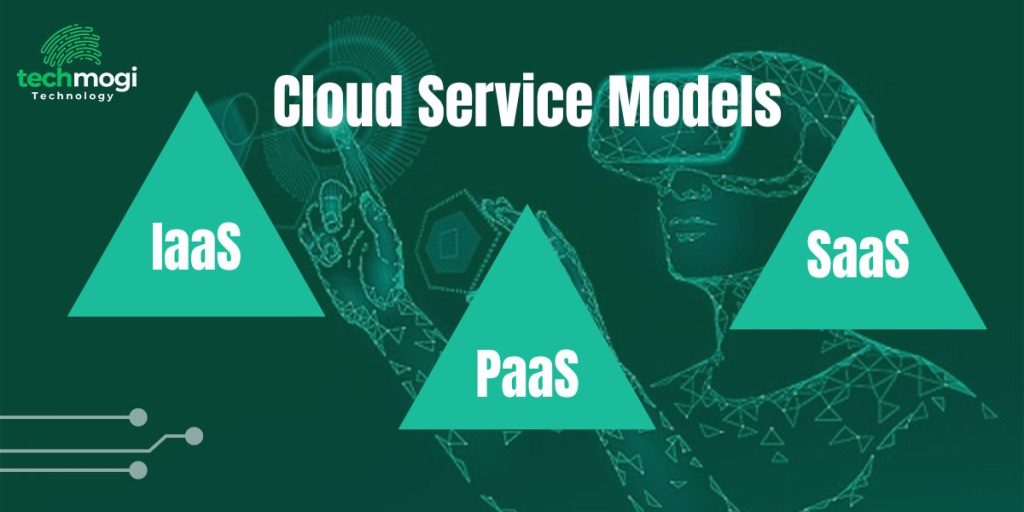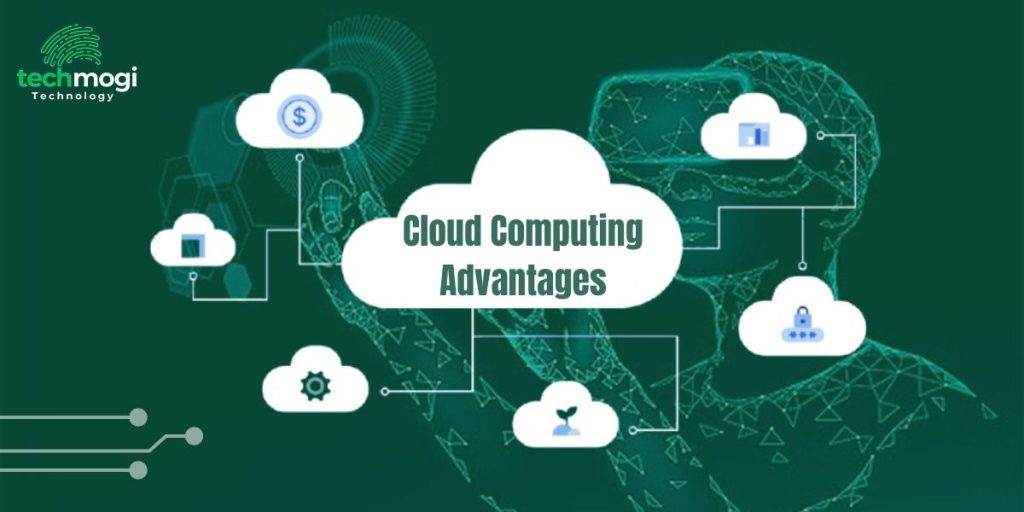What is cloud computing essentials?
In today’s rapidly evolving technological landscape, cloud computing essentials are more crucial than ever for businesses, from small startups to large enterprises. The cloud enables organizations to store, manage, and process data over the internet, offering unparalleled benefits in terms of flexibility, scalability, and efficiency.
This guide provides a detailed breakdown of cloud computing essentials,, the various cloud service models (IaaS, PaaS, SaaS), scalability and flexibility.
What is Cloud computing?
Cloud computing is the on-demand delivery of computing services over the internet. These services include everything from storage and databases to networking, software, and more. The key benefit of cloud computing is that it allows businesses and individuals to access and use these services without needing to manage physical infrastructure or on-site servers.
With cloud computing, you pay only for what you use, and everything is hosted remotely on the cloud provider’s servers, ensuring high availability, flexibility, and efficiency.
Cloud Service Models: IaaS, PaaS, and SaaS

The cloud operates through different cloud service models, each offering a unique set of tools and functionalities to meet specific business needs. Let’s break down the primary models:
Infrastructure as a Service (IaaS)
IaaS provides virtualized computing resources over the internet. With IaaS, businesses can rent virtual servers, storage, and networking components without having to invest in physical hardware. This model is ideal for businesses that need a flexible infrastructure to scale their operations quickly.
- Example Providers: Amazon Web Services (AWS), Microsoft Azure, Google Cloud
- Use Case: Hosting websites, running virtual machines, backup and recovery systems.
Platform as a Service (PaaS)
PaaS offers a platform that enables developers to build, deploy, and manage applications without the need for maintaining the underlying infrastructure. PaaS solutions typically include tools for development, testing, and deployment, making it an ideal choice for software development companies.
- Example Providers: Heroku, Google App Engine, AWS Elastic Beanstalk
- Use Case: Developing custom software applications, testing environments.
Software as a Service (SaaS)
SaaS delivers fully functional software applications over the internet. These applications are hosted on the cloud computing essentials provider’s infrastructure, and users access them through a web browser, meaning there’s no need for businesses to install or maintain software on their local machines.
- Example Providers: Google Workspace, Microsoft 365, Salesforce
- Use Case: CRM tools, email services, collaborative software.
Benefits of Cloud Computing
Understanding the benefits of cloud computing is essential for organizations to make an informed decision on leveraging cloud solutions. Here are some of the core advantages:
Cost Efficiency
One of the most significant benefits of cloud computing is its cost-effectiveness. Traditional on-premises solutions require considerable upfront investment in hardware, software, and IT infrastructure. Cloud services operate on a pay-as-you-go or subscription basis, meaning businesses only pay for the resources they use, which can drastically reduce costs.
Disaster Recovery and Backup
Cloud computing offers robust disaster recovery solutions, ensuring business continuity. In case of a system failure or data breach, cloud service providers back up your data and enable rapid recovery, minimizing downtime and potential losses.
Remote Accessibility
Cloud computing allows employees to access systems and data from anywhere, at any time, as long as they have an internet connection. This has been especially beneficial in the era of remote work, enabling businesses to stay productive without physical office locations.
Automatic Updates and Maintenance
Cloud service providers manage system updates, security patches, and software upgrades, ensuring that businesses have access to the latest features and enhanced security without requiring manual intervention.
Environmental Sustainability
Cloud computing essentials promotes environmental sustainability by reducing the need for on-premises hardware and energy consumption. Providers use efficient, large-scale data centers that minimize energy use, which helps businesses reduce their carbon footprint.
Cloud Computing Advantages for Businesses

In addition to the core benefits of cloud computing, businesses stand to gain multiple advantages from migrating to the cloud. These advantages are integral to achieving long-term success in an increasingly competitive environment.
Improved Collaboration
Cloud-based collaboration tools enable teams to work together seamlessly across locations, increasing productivity. Features such as real-time document editing, file sharing, and communication tools make team collaboration more efficient.
Cloud Flexibility and Scalability
Cloud scalability and flexibility are two of the most significant advantages for businesses looking to grow and adapt quickly. The cloud allows businesses to scale up or down depending on demand without worrying about over-committing to hardware or infrastructure.
Enhanced Performance
Cloud computing ensures optimal performance by providing businesses with access to high-performance servers and network infrastructure that might be out of reach with on-premises setups. Cloud providers optimize infrastructure to ensure minimal latency and fast processing speeds.
Data Analytics and Insights
With cloud platforms, businesses gain access to powerful data analytics tools that help them extract actionable insights from vast amounts of data. This enables companies to make data-driven decisions, improving their operations, marketing strategies, and customer satisfaction.
Security and Compliance
Cloud providers invest heavily in security measures, such as encryption, firewalls, and secure access protocols. Additionally, many cloud services comply with industry-specific regulations (e.g., HIPAA, GDPR), ensuring that businesses meet legal and compliance standards.
Cloud Scalability and Flexibility
One of the most powerful features of cloud computing is its scalability and flexibility. In traditional IT environments, scaling resources requires physical hardware upgrades, which can be time-consuming and costly. In contrast, cloud services allow businesses to scale up or down within minutes to accommodate changing needs.
Vertical and Horizontal Scaling
Cloud platforms offer two primary types of scaling:
- Vertical Scaling: Increasing the power of an individual machine (e.g., upgrading CPU, RAM).
- Horizontal Scaling: Adding more machines to distribute the load, improving performance.
Elastic Resources
Cloud computing essentials are highly elastic, meaning businesses can access additional resources during periods of high demand and reduce them when demand decreases, optimizing both cost and performance.
Cloud Security Best Practices
While the cloud provides numerous advantages, ensuring cloud security is crucial for protecting business data. Adhering to best practices in cloud security helps mitigate risks and safeguard sensitive information.
Data Encryption
Always encrypt data both in transit and at rest to ensure that sensitive information remains secure. Most cloud service providers offer encryption services, but businesses should verify that encryption is enabled by default.
Strong Authentication Methods
Utilize multi-factor authentication (MFA) to add an extra layer of security when accessing cloud applications and services. This reduces the likelihood of unauthorized access to business-critical systems.
Regular Security Audits
Conduct periodic security audits to identify potential vulnerabilities in cloud systems. Regular audits help detect and fix security gaps before they can be exploited by malicious actors.
Data Backup and Disaster Recovery
Ensure that cloud data is regularly backed up and that a disaster recovery plan is in place. This ensures that business operations can quickly resume in case of a breach, natural disaster, or data corruption.
Compliance Adherence
Ensure that your Cloud computing essentials provider meets regulatory compliance standards relevant to your industry (e.g., GDPR, HIPAA). This helps avoid costly legal consequences and builds trust with customers.
Learn More : Android private compute services
Conclusion
In summary, cloud computing essentials are transforming how businesses operate, providing flexibility, scalability, and robust security features that allow companies to stay competitive. By leveraging the benefits of cloud computing and understanding the core cloud service models (IaaS, PaaS, SaaS), businesses can optimize their operations and stay agile in an ever-changing market. As cloud technology evolves, it will continue to provide businesses with new opportunities for growth and innovation, making it a critical component of any modern enterprise.
FAQs
How can cloud computing enhance data security?
Cloud providers implement various security measures such as encryption, firewalls, and secure access protocols. Additionally, multi-factor authentication (MFA) and regular security audits help ensure data security in the cloud.
How does cloud computing improve business collaboration?
Cloud computing provides real-time collaboration tools, file sharing, and communication platforms that enable teams to work together seamlessly, no matter their location.

Hi, I’m Ethan Cole, the writer behind techmogi.com. I cover tech topics like how-to guides, digital tools, social media tips, and everyday tech fixes. I enjoy breaking down complex information into simple, useful content that anyone can understand. If you’re looking for clear, no-nonsense tech advice, you’ll feel right at home here.